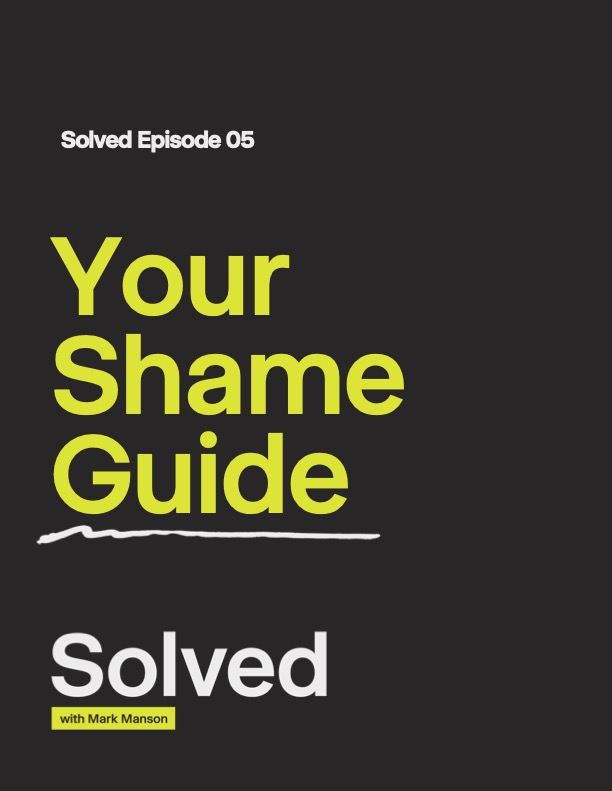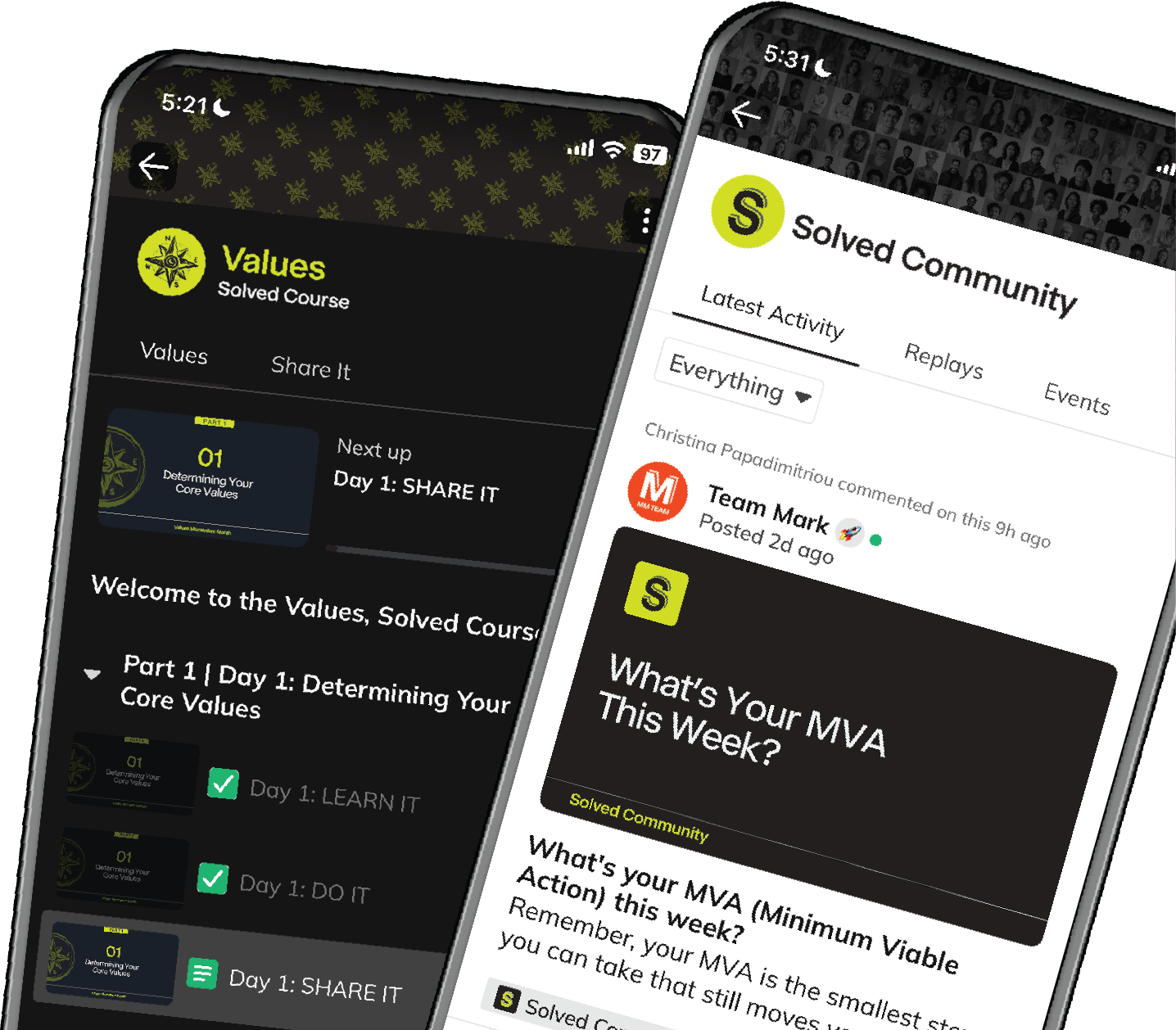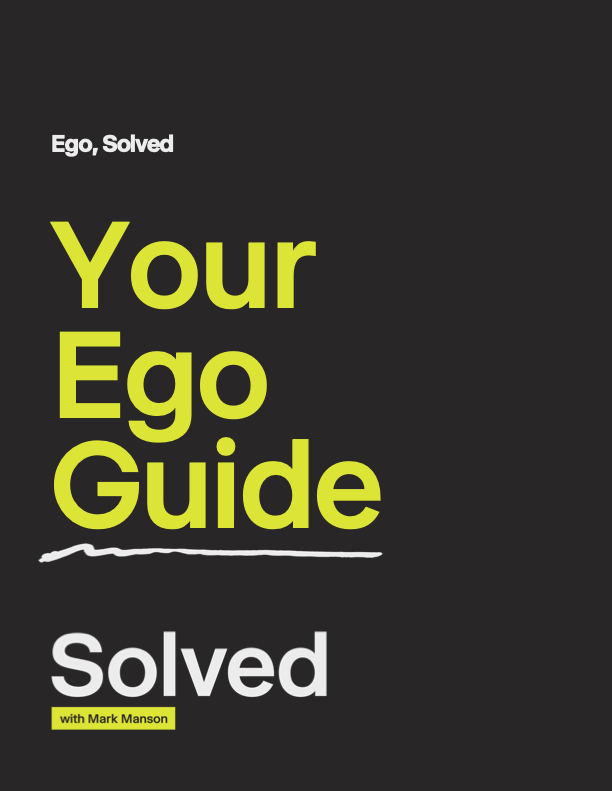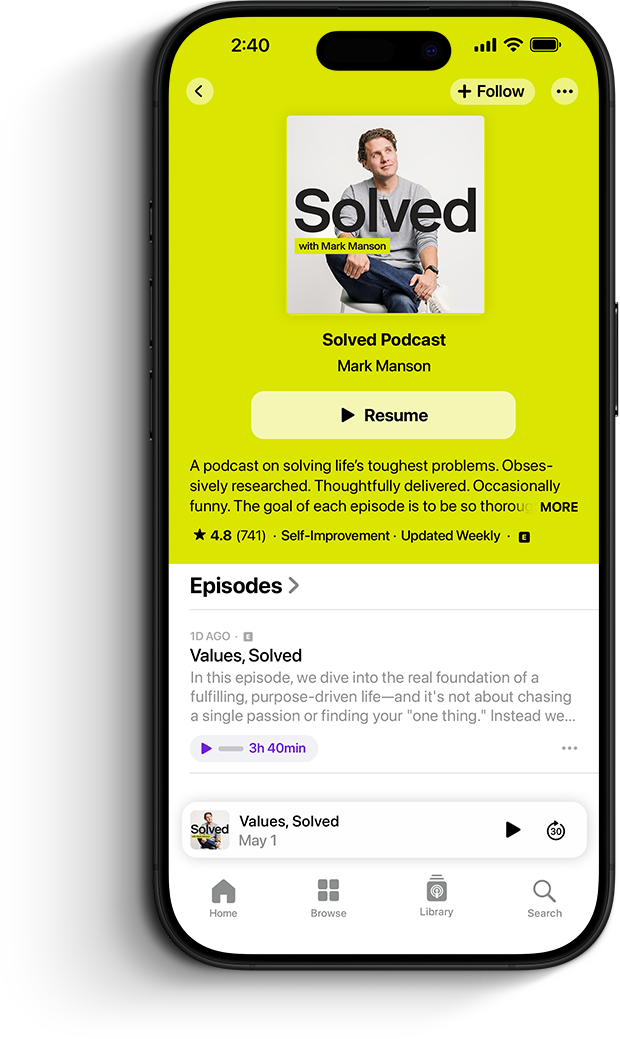Shame, Solved
Chances are, there’s something in your life you feel deeply ashamed about—something you’ve never told anyone, something you can’t even admit to yourself. In this episode, we go deep into the emotion we all experience but almost no one wants to talk about: shame. Where it comes from, why it’s so powerful, how it screws up our lives—and more importantly, how to deal with it.
We cover the biology of shame, the psychology, the evolutionary roots, and how modern life (especially the internet) completely messes with our shame systems. We talk about healthy vs. toxic shame, how it shows up in addiction, relationships, perfectionism, and self-sabotage, and why most of us either try to hide from it or end up being controlled by it. You’ll also hear from members of my team about how shame shaped their lives in surprising ways.
As always, this episode is brutally honest, deeply researched, and sprinkled with a few bad jokes. But more than anything, I hope it gives you the awareness—and the tools—to start facing whatever it is you’ve been avoiding. Because you can’t outrun your shame. But you can learn to live with it.
Episode Notes
Referenced in This Episode
- Alcoholics Anonymous (AA)
- Leviathan (book)
- Bessel van der Kolk
- The Body Keeps the Score (book)
- Carl Rogers
- Person-Centered Therapy
- Albert Ellis
- Rational Emotive Behavior Therapy (REBT)
- Cognitive Behavioral Therapy (CBT)
- Internal Family Systems (IFS)
- Richard C. Schwartz
- Brené Brown
- Daring Greatly (book)
- Kristin Neff
- Self-Compassion (book by Kristin Neff)
- Donald Nathanson
- Compass of Shame
- Shame and the Social Emotions (June Tangney)
- Chris Germer
- Justine Sacco Case
- Quincy Jones
- Marcus Aurelius
- Meditations (book)
- Overview Effect
- The Atlantic – “The Cruelty Is the Point”
- Jonathan Haidt
- Individualist vs. Collectivist Cultures
- Heal the Shame That Binds You (John Bradshaw)
- Explaining Unhappiness (Peter Spinogatti)
- Michael Lewis (developmental psychologist)
- June Tangney
- Shame and Guilt (book by Tangney)
- John Bradshaw
- Jean Piaget (child development theory)
- Carl Jung (analytical psychology)
- Richard C. Schwartz
- Peter Spinogatti
- Shame and the Exposed Self (book)
- Shame resilience (Brené Brown)
- Good Will Hunting (film)
Prefer to read this episode?

Well, you’re in luck. I made you a handy digital reference guide with the sharp recaps you need—because let’s be real, you’ll forget half of this by tomorrow.
It’s free. Just join the podcast mailing list, and I’ll send it over. No spam, no fluff—just the stuff that actually helps.
Hit the button. Get the goods.
Your information is protected and I never spam, ever. You can view my privacy policy here.




